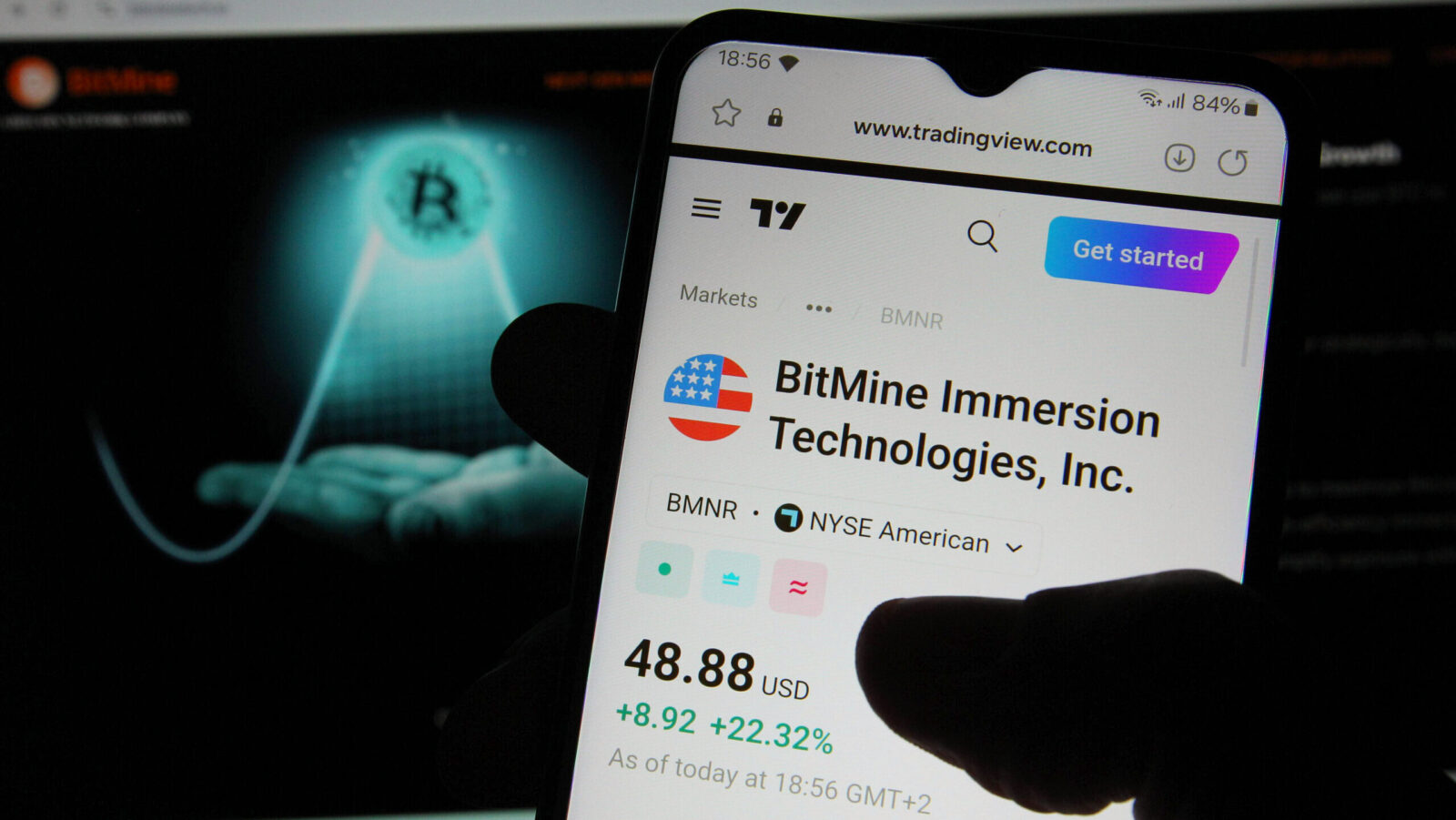Good morning.
It’s time to update the billionaire leaderboards.
Larry Ellison bumped Facebook founder Mark Zuckerberg from second place on the updated Bloomberg Billionaires Index on Wednesday, after his net worth surged to $251 billion, thanks in large part to Oracle’s more than 90% share price surge since late April off the AI trade.
Meanwhile, his son David has suddenly found himself in a high-stakes legal fight with the minds behind “South Park” as his company, SkyDance Media, completes its acquisition of Paramount. The “South Park” production company says it had agreed to a basic framework for a 10-year, $3 billion contract extension with a pre-acquisition Paramount, which SkyDance now says it has the authority (or authoritah!) to approve or reject ahead of closing its merger. According to The Hollywood Reporter, SkyDance is refusing any contract longer than five years, while sources told Puck this week that the “South Park” crew has hired Hollywood bulldog litigator Bryan Freedman in preparation for a likely lawsuit. Our advice? With a few extra billion to his name, Larry can just bump up his son’s summer allowance to cover the “South Park” contract to keep him out of the cartoon’s ruthless comedic crosshairs. Just wait for our Legal Upside.
Ethereum Treasuries Boom as Companies Look Beyond Bitcoin

In crypto, coming in second can pay even better than winning, as long as Peter Thiel is writing the checks.
The tech billionaire’s venture capital firm Founder’s Fund has snatched up a 9% stake in BitMine Immersion Technologies. BitMine recently pivoted its focus from Bitcoin mining to building up its treasury stash of ether, disclosing this week that it now holds more than $500 million worth of the second-biggest crypto by market cap.
Companies have been racing to bulk up their Ethereum treasuries as they look to copy-and-paste strategies that worked for Bitcoin, the No. 1 crypto.
Mimicking Michael Saylor
Michael Saylor pioneered crypto treasuries in 2020 while leading Strategy (formerly MicroStrategy), the largest corporate holder of Bitcoin by far, with more than 600,000 Bitcoin in its stash. For investors, buying Strategy shares is a way to get indirect exposure to Bitcoin without directly investing in the digital asset. Dozens of companies have copied Strategy’s model in recent months — even GameStop bought more than $500 million worth of Bitcoin.
Now, companies are jockeying to become the Strategy of Ethereum:
- In the past 30 days, Ethereum treasury companies scooped up more than 545,000 ether worth at least $1.6 billion, CoinTelegraph reported. As companies piled into ethereum, the asset rallied to a five-month high yesterday, breaking the $3,200 mark for the first time since February.
- SharpLink now controls the largest corporate treasury of ether, even though the gaming and crypto company only started buying the asset last month. The firm has quickly accumulated 280,000 ether worth $846 million.
But ether and Bitcoin are fundamentally different, and so are their treasuries. While Bitcoin acts as a digital store of value that sits in a vault, ether has myriad uses on the blockchain. For instance, SharpLink revealed that nearly 100% of its ether stash is staked, meaning it’s being actively used to generate more ether.
Shifting Spotlight: Bitcoin miners like BitMine could be looking for new sources of revenue after the crypto last year underwent its latest “halving,” an event that cuts mining rewards in half. At the same time, Bitcoin has become crowded with investors piling into its ongoing rally (it broke past $120,000 for the first time Monday). Meanwhile, Ethereum, which many stablecoins are built on, could soon see an influx of traditional finance investors once the stablecoin regulatory framework that has been moving through the House gets President Trump’s official green light. Treasury firms are ready and waiting … with giant piles of ether.
Your Savings Account Is Falling Behind
The national average savings rate? Just 0.45% APY. Some big banks still offer 0.01%. Meanwhile, you can get over 4.45% APY2 from federally insured accounts – if you know where to look.
Raisin hunts down the best rates for you.
It’s a free platform that gives you access to high-yield savings accounts and CDs from 75+ FDIC- and NCUA-insured institutions. One login. No need to switch banks every few months.
It’s one of the simplest ways to earn more, without taking on risk.
Westinghouse Lays Groundwork to Build 10 New Nuclear Reactors
The US energy industry’s long nuclear winter may finally be giving way to spring.
None other than Westinghouse, the firm responsible for the only two nuclear reactors built in the US in the past three decades, is among those leading the charge. The company has announced plans to begin construction on 10 reactors in the US by 2030. Hopefully, Westinghouse has learned some lessons from its previous projects.
Wishin’ We Were Fission
Westinghouse has changed hands a bit since completing its last nuclear reactors, both at Plant Vogtle in Waynesboro, Georgia. That’s because the Georgia project proved something of a disaster. Not “Three Mile Island” disastrous, mind you, but some seven years and $18 billion over budget. That proved enough to tip the company into bankruptcy in 2017. It re-emerged the following year and was acquired in 2023 by Brookfield Asset Management and Canadian uranium mining company Cameco.
This time around, the company is following the lead of the White House, which hopes that a series of executive orders issued earlier this year will kickstart a nuclear rebound. The extra gigawatts would come in handy as extreme weather stresses the US energy grid; on Wednesday, heat advisories issued across the eastern US prompted an emergency alert from major grid operator IJM Interconnection. Worsening the country’s energy woes are the massive and power-hungry data centers — especially those powering artificial intelligence — that are increasingly coming online.
Fittingly, one of the tech titans building those data centers is helping Westinghouse turn its nuclear dreams into reality, possibly on time and on budget:
- On Tuesday, Westinghouse announced that it would team with Google, using the tech company’s AI tools to turn the construction of its AP1000 reactors into an “efficient, repeatable process.”
- Each of those 10 reactors can generate enough electricity to power more than 750,000 homes, creating as much as $75 billion in economic value across the country, interim Westinghouse CEO Dan Sumner said on Tuesday.
Alphabet Soup: Helping out Westinghouse is just one part of Google’s plans to support the energy demands of its growing AI ambitions. On Tuesday, the company also announced that it would invest $25 billion in data-center and AI infrastructure, including plans to upgrade two hydropower plants in Pennsylvania. Microsoft, too, is getting in on the action, announcing Wednesday a partnership with the Idaho National Laboratory to use its AI tools to speed up licensing and permitting of nuclear projects. The challenge will be not using too much AI while trying to make sure the grid gets upgraded so they can use more AI.

This Plastic Disappears Like Magic. With 450M metric tons of plastic waste yearly, you can imagine how revolutionary a new kind of plastic that completely dissolves in water would be. Major players are partnering with Timeplast for their patented material. Time’s running out – become a Timeplast shareholder by July 31st.**
Goldman’s ‘Midas Touch’ During Turbulent Quarter Delivers Record Trading Results
A historic trading run by Goldman Sachs seems to have been fueled by three things: Red Bull, coffee and turmoil.
The investment bank delivered its best stock-trading quarter ever in the three months through June, according to a statement Wednesday. Its equities trading unit surfed the waves of market volatility sparked by President Trump’s tariffs to the tune of a record $4.3 billion in revenue, good for a 36% year-over-year gain and more than $600 million more than analysts surveyed by StreetAccount anticipated.
Rocking the Roller Coaster
Goldman’s status as the crème de la crème of investment banking has earned it nicknames of both adulation and ire. Eager and brilliant young minds line up for a shot at an internship at “Goldmine Sachs,” so nicknamed for the platinum paydays of top executives; the acceptance rate to be one of the firm’s interns is below 1%. Then there’s the less flattering and infamous nickname Rolling Stone bestowed in the wake of the 2008 financial crisis: “a great vampire squid wrapped around the face of humanity.”
But friend and foe alike acknowledge that Goldman is Wall Street’s most prestigious investment bank, which makes Wednesday’s triumph a symbolic achievement in addition to a bonus-padding one:
- When the S&P 500 looks like a roller coaster, as it did during the past three months, Goldman reaps a fee windfall from all the stock-buying and selling that takes place. The bank’s equities “intermediation” fees, or the money it earns from acting as a middleman connecting buyers and sellers, increased by 45%.
- Another key source of revenue in volatile times comes from equities financing, which rose 23%. In short, this refers to the money Goldman makes from lending cash to hedge funds and other large buyers navigating choppy market waters in pursuit of their own returns.
Goldman’s top-line metrics also bested analysts’ expectations, with profit climbing 22% to $3.7 billion and total revenue rising 15% to $14.6 billion. Equities desks at rivals JPMorgan and Morgan Stanley also brought in major hauls, though Goldman’s traders netted over $1 billion more than the former.
Dining Out: During the second quarter, Trump delayed imposition of some tariffs to allow for negotiations with trading partners, leading to the “Trump Always Chickens Out” or TACO trade, whereby investors took advantage of the volatility. But the president, at least for now, appears serious about planned August 1 tariffs. That posture hasn’t prompted another selloff so far, but only time will tell if TACO ends up back on the menu.
Extra Upside
- Make it Bahrain: The prime minister of the Gulf Kingdom announced $17 billion worth of investments in the US, headlined by a pledge to buy 12 Boeing jets.
- Will He or Won’t He: President Trump said he does not plan on trying to fire Federal Reserve Chair Jerome Powell, calling it “highly unlikely.”
- We Know Crypto Can Feel Like Rocket Science, But That’s Not An Excuse to Close Your Eyes. Grayscale has been educating investors on crypto since the early days of the asset class. Explore crypto with Grayscale today.***
*** Partner
Just For Fun
Disclaimers
*¹New customers only. Earn a cash bonus when you deposit and maintain funds with partner banks on the Raisin platform. Customers will receive $75 for depositing between $10,000 and $24,499, $250 for depositing between $25,000 and $49,999, and $500 for depositing $50,000 or more. To qualify for the bonus, your first deposit must be initiated by July 31, 2025, by 11:59 PM ET, and the promo code BOOST must be entered at the time of sign-up. Only funds deposited within 14 days of the initial deposit date and maintained with partner banks on the Raisin platform for 90 days will be eligible for this bonus. Bonus cash will be deposited by Raisin into the customer’s linked external bank account within 30 days of meeting all qualifying terms. This offer is available to new customers only and may not be combined with any other bonus offers. Raisin reserves the right to modify or terminate this offer at any time.
2APY means Annual Percentage Yield. APY is accurate as of July 16, 2025. Interest rate and APY may change after initial deposit depending on the terms of the specific product selected. Minimum opening deposit is $1.00. National average comparison is based on current FDIC U.S. national average for banks and NCUA U.S. national average for credit unions.
**This is a paid advertisement for Timeplast’s Regulation CF Offering. Please read the offering circular at invest.timeplast.com.

